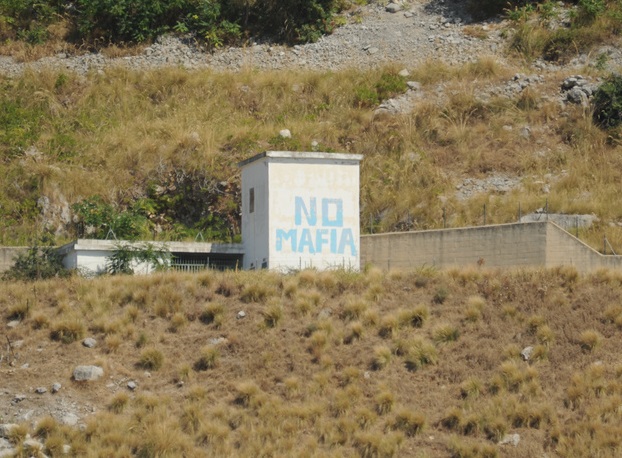The Beat, CT Scan and Checkpoint
Mafia influencing Australian business and politics: part 2
The ABC/Fairfax investigation into organised crime in Australia has hit the international news, with Italian prosecutor Nicola Gratteri warning that increased focus on terrorism allows unwatched organised criminals to flourish. In light of such reports, there’s never been a better time to have that difficult conversation with business and the community about organised crime, as David Connery and I outline.
Kiwi sandwich gangs
New Zealand has the largest number of gang members per capita worldwide. But a recent Dateline report presents a different side of criminal gangs, showing their involvement in community life, such as those making sandwiches every school day for kids who would otherwise go without.
Whilst police have remained wary of the gangs, a more trusting relationship has developed through long-term involvement with community organisations like the Taitimu Trust, which brings together and supports vulnerable young people, providing them with a sense of belonging alternative to a gang. Sociologist Jarrod Gilbert comments that gangs change as their members mature, noting they tend to commit less violent crime beyond the age of 40. VICE recently ran this interview and photo essay highlighting NZ’s Mongrel Mob.
New law enforcement support
The New South Wales Custody Notification Scheme has been granted federal funding. With no indigenous deaths in custody recorded in NSW since the scheme began, NSW indigenous affairs Minister Nigel Scullion hopes the scheme can be rolled out across Australia, with Western Australian premier Colin Barnett expressing an interest. Renewed funding in NSW could even be an impetus for expanding the program.
CT Scan
What have we learnt about radicalisation?
Experts converged in the UK this week for briefings on six areas of research into radicalisation, from social networks, the internet and lone wolves to what we can learn from cults. Highlights include a briefing from Melbourne University’s David Malet, who provides a sober analysis of the impact of foreign fighters on radicalisation at home. See here to read and listen to the briefings.
A Danish man has set out his extremism journey, highlighting the influential role his Muslim mentor played in the deradicalisation process. The mentoring strategy is a component of the Aarhus Model, an initiative set up to turn young Danes away from fighting for al-Qaeda or Islamic State.
The Virtual Caliphate
Check out Quilliam’s new report ‘The Virtual Caliphate’, which looks deep into Islamic State’s propaganda since June 2014. Over at Jihadology, Cori E. Dauber and Mark Robinson dissect how the group uses compositional elements of production to create its infamous ‘Hollywood quality’ propaganda.
7/7 anniversary
Tuesday marked 10 years since the 2005 London bombings. Jason Burke at The Guardian explains how the bombings marked a new era of uncertainty for the world. But for Gill Hicks, a survivor of the bombings who lost her legs, the event fuelled her ‘positive anger’ that drives her current deradicalisation work.
Checkpoint
Border dispute: UN called upon
Unclear demarcation and alleged encroachment by Vietnam have increased Cambodian concerns for stability in Svay Rieng province Recent clashes involving opposition party officials from Cambodia and security personnel from Vietnam compelled Cambodian Prime Minister Hun Sen to host a bilateral border meeting to ease the volatile situation.
Despite cooperative efforts, Vietnam’s claims over Cambodia’s alleged use of ‘controversial’ maps to settle the dispute has stalled demarcation talks, leaving the border still unsettled in many places. Prime Minister Hun Sen has now requested that the UN provide their official border maps in the hope that the border demarcation process can be resumed.
